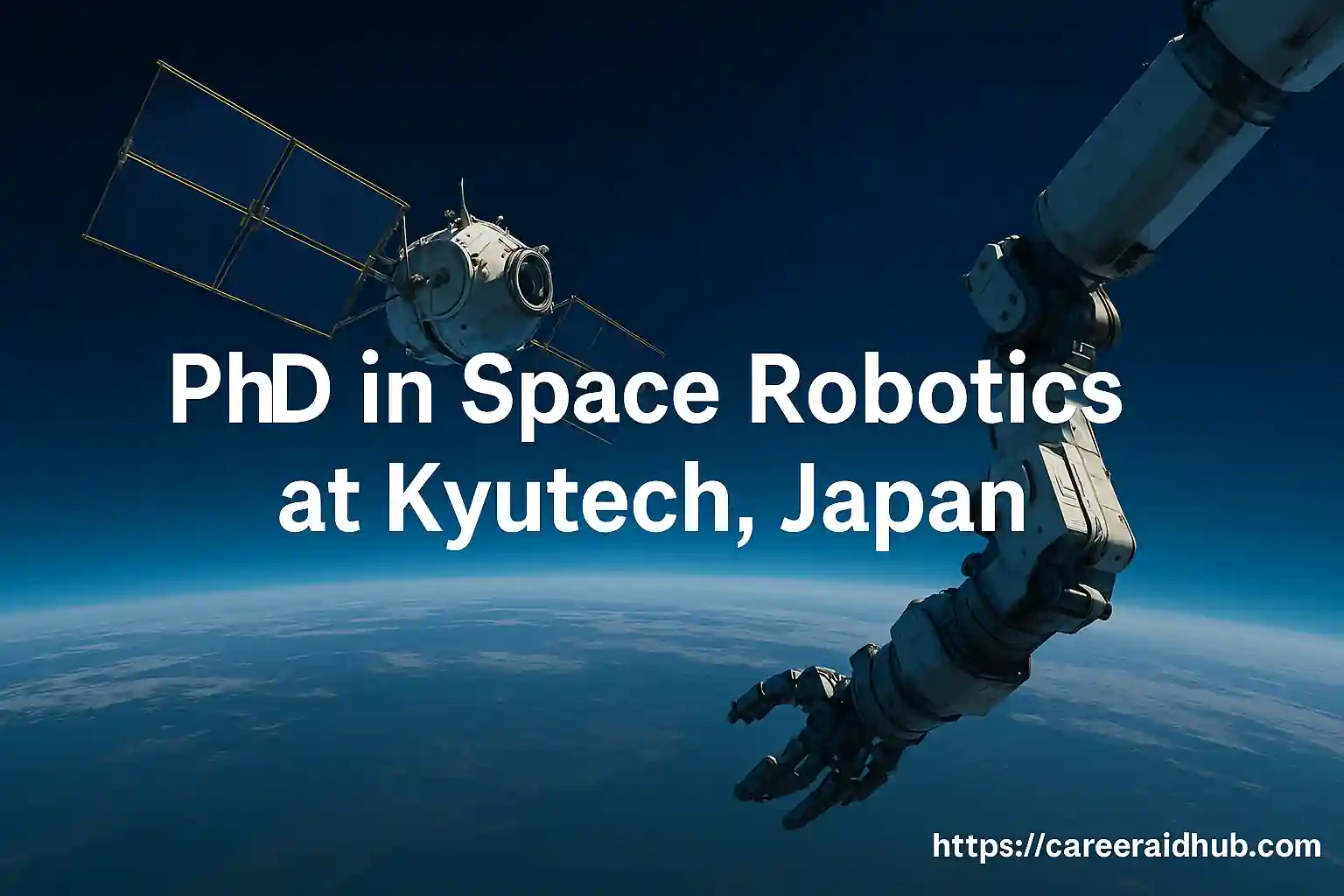Join Tohoku University’s space robotics team as a Project Researcher and help shape the future of orbital autonomy. This fixed-term role offers hands-on experience in spacecraft control systems, AI robotics, and global collaborations—ideal for PhD holders in robotics, aerospace engineering, or control systems.
Tohoku University, a leading research institution in Japan, has opened applications for a Project Researcher position specializing in space robotics. This opportunity is part of an ambitious initiative focused on orbital robotics and advanced spacecraft control systems. The role is tailored for candidates holding a PhD in robotics, aerospace engineering, or control systems, offering a chance to contribute to international space science efforts.
About the Position
Position Overview
-
Title: Project Researcher – Space Robotics
-
Institution: Tohoku University, Japan
-
Department: Advanced Institute for Space Science and Technology
-
Type: Fixed-term research position
-
Field: Orbital robotics, spacecraft control systems
-
Location: Sendai, Miyagi Prefecture, Japan
This position supports research activities in the field of autonomous robotic systems for orbital missions, including tasks such as satellite servicing, orbital inspection, and microgravity operations. The selected researcher will work as part of a globally connected team with access to advanced facilities and academic collaborations.
Research Focus Areas
The role encompasses development and experimentation in space robotics applications including:
-
On-orbit servicing (OOS) techniques and
orbital mechanics -
Autonomous spacecraft control and AI-based navigation
-
Dexterous manipulation in microgravity environments
-
Sensor fusion and localization algorithms
-
Fault-tolerant robotic control systems
Candidates with proficiency in robotic kinematics, dynamic modeling, spacecraft attitude control, or computer vision technologies will have a competitive edge.
Target Applicants
This position is suitable for:
-
Early-stage or recent PhD graduates in relevant technical fields
-
Postdoctoral researchers specializing in space systems or mechatronics
-
Researchers with publications in high-impact robotics or aerospace journals
-
Candidates experienced with development environments such as ROS, MATLAB, Simulink, Python, and C++
-
International applicants seeking experience within Japan’s academic R&D ecosystem
Application Procedure
Applicants are required to submit their application via the official JREC-IN Portal. The submission must include:
-
Curriculum Vitae (CV) detailing education and research experience
-
Research statement aligned with the project scope (1–2 pages)
-
List of publications with citations and DOIs
-
Names and contact information of two professional referees
-
Documentation confirming completion or expected completion of a PhD
Visit the portal and search for “Tohoku University
JREC-IN Portal Official Link
Timeline
-
Application Deadline: July 10, 2025
-
Shortlisting Results: Late July 2025
-
Interviews (Online or Hybrid): August 2025
-
Expected Start Date: September to December 2025
About the Host Institution
Established in 1907, Tohoku University is one of Japan’s top-tier research universities, renowned for innovations in materials science, robotics, and disaster resilience. The university’s Advanced Institute for Space Science and Technology actively partners with agencies such as JAXA, NASA, and other global academic institutions to push the boundaries of space research.
Benefits of the Role
-
Opportunity to contribute to real-world orbital robotics and space missions
-
Collaboration with national and international aerospace partners
-
Access to cutting-edge laboratory facilities and simulation environments
-
Exposure to diverse technical challenges and interdisciplinary research
-
Living in Sendai, a hub for education, nature, and technology in northern Japan
Eligibility Requirements
Minimum Qualifications:
-
PhD in robotics, aerospace engineering, or control systems (completed or expected by start date)
Preferred Qualifications:
-
Peer-reviewed publications in recognized robotics or aerospace
journals (e.g., IEEE, ASME) -
Hands-on experience in robotics for space or harsh environments
-
Strong understanding of orbital dynamics and spacecraft engineering
-
Programming proficiency in ROS, Python, C++, MATLAB, or Simulink
English proficiency is required for all applicants. Japanese language skills are not mandatory but may be advantageous for integration.
Preparation Resources
To enhance your application:
-
Review past work from the Tohoku University Space Robotics Lab
-
Study missions like JAXA’s ETS-VII and Hayabusa for reference
-
Align your research goals with real-world mission challenges
-
Utilize open-access datasets from NASA, ESA, and JAXA for contextual understanding
Conclusion
The Project Researcher position at Tohoku University offers a strategic platform for researchers aiming to impact the future of autonomous systems and orbital robotics. This role provides both early-career and experienced researchers with a unique chance to work in a collaborative, world-class environment. Applications must be submitted by July 10, 2025, via the official JREC-IN portal. [Source: https://jrecin.jst.go.jp/]
Key Details
| Feature | Information |
|---|---|
| Position | Project Researcher – Space Robotics |
| Location | Tohoku University, |
| Application Deadline | July 10, 2025 |
| Application Method | Online via JREC-IN Portal |
| Eligibility | PhD in robotics, aerospace engineering, or control systems |
| Start Date | Flexible; ideally by the end of 2025 |
| Contract Type | Full-time, Fixed-term |
| Funding Source | Government and institutional research grants |
FAQs
Applicants must hold a PhD in robotics, aerospace engineering, or control systems to be eligible.
Yes, international candidates with strong research records are highly encouraged to apply.
No, English is sufficient for the role, although Japanese may help in daily interactions.
Candidates should be familiar with ROS, Python, C++, MATLAB, or Simulink environments.
It is a fixed-term research position focused on space robotics and spacecraft control systems at Tohoku University in Japan.










